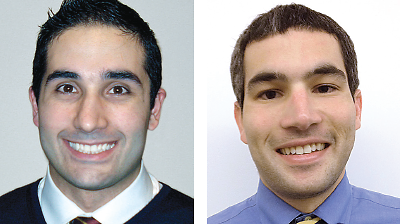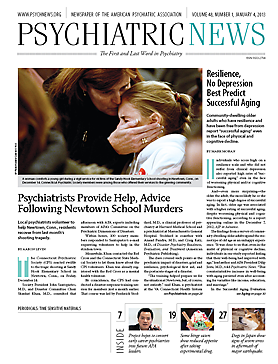During his inaugural speech after becoming president of APA, Dr. Dilip Jeste laid out his plan to expand the organization across international boundaries. “APA already is a big tent, but I would like to expand it even further by getting more international members, subspecialists, younger psychiatrists, and those from diverse backgrounds,” he said. “APA also can contribute significantly to educational activities in various other countries, especially the developing countries where there is a serious shortage of psychiatrists.”
It is no surprise that Dr. Jeste has selected this goal as a priority due to the global disease burden of mental illness, which is increasing at a dramatic rate. While the United States is the world leader in psychiatric and neuroscientific research, it accounts for only 5 percent of the world’s population. The most recent data from the World Health Organization (WHO) indicate that 76 percent to 85 percent of people with severe mental health disorders in low- and middle-income countries receive no treatment for their mental health conditions. Furthermore, more than 1 million people a year complete suicide, and depression is being projected to be the leading contributor to global disease burden by 2020.
As future leaders in psychiatry, it is essential that we residents follow Dr. Jeste’s lead in establishing bidirectional opportunities in mental health care delivery, research, and education with our colleagues around the globe.
This concept has already taken hold at distinguished institutions across the country including Mount Sinai School of Medicine, Duke University, George Washington University, and Massachusetts General Hospital (MGH). As its Web site indicates, MGH has established a Global Psychiatry Research Center with a mission to “make clinical, educational, and research contributions to world mental health and to help reduce the global burden of disease by learning from our neighbors and by contributing what we know to better relieve the suffering from mental illnesses around the world.”
It is clear that many more institutions are looking to collaborate with health care partners across the world.
As residents who have participated in international mental health opportunities, we feel these experiences are essential in developing a better understanding of the biopsychosocial formulation of our patients. The cultural and societal dynamics in specific geographical areas play major roles in evaluation and treatment of mental disorders. It is important to be able to delineate the role of these factors in our diagnosis to avoid labeling a common trait in an ethnic group as psychopathology.
Conversely, psychiatric illness can manifest differently depending on location, with unique factors that may predispose, precipitate, and perpetuate these disorders. For example, research in international populations may allow us to understand why schizophrenia appears to have a better prognosis in low- and moderate-income countries despite their limited investments in mental health care resources, as has been found in studies by the WHO and others. Furthermore, we may be able to explore how alternative treatments for psychiatric illness, such as mindfulness based on Japanese Zen meditation, are effective for all patients no matter their ethnic background.
We encourage residents with an interest in international aspects of psychiatry to learn more about the World Psychiatric Association (WPA), which has 135 member societies including APA, and through those societies has a total membership of more than 200,000. If a psychiatrist is a member of APA, then the WPA automatically grants that person individual membership in the WPA as well. The WPA hosts both regional and global meetings at which residents can gain unique insights and experiences in connecting with peers from across the world. Also, such experiences may allow residents to gain experience in using alternate classification systems such as the ICD-10 and the Chinese Classification of Mental Disorders.
Mental illness will continue to be a major factor in the overall health of our patients both locally and worldwide. Even if we never practice outside of the United States or Canada, we will need to have a basic cultural proficiency to understand our ever-changing populations.
One could hypothesize that the global financial crisis that began in 2008 was a sneak preview of a future in which countries are inherently tied together for common goals or misfortunes. As the anticipated global burden of psychiatric illness is enormous, and resources to deal with it are limited, we must continue to initiate bidirectional participation to share the burden. To borrow a quote from Freud, “Individual commitment to a group effort—that is what makes a team work, a company work, a society work, a civilization work.” ■

